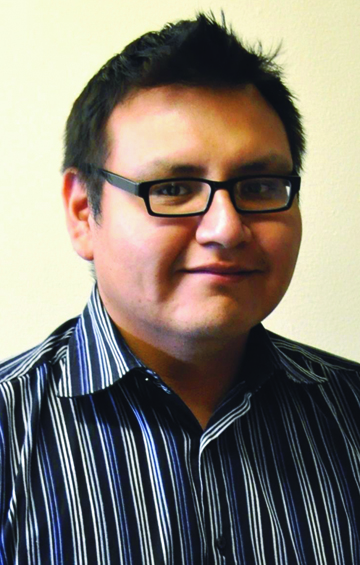 The concept of privilege is one that’s
The concept of privilege is one that’s
both acknowledged and dismissed, depending on which side of cultural
identity one hangs one’s hat.
For many in the Native American
community, both on the reservation and in the urban setting,
privilege is something that we see as the cause of our oppression.
It’s a catch-all for the discrimination we face individually and
collectively. Growing up in rural South Dakota, my parents and I were
followed around in retail stores in Rapid City, Pierre and Sioux
Falls. As tribal nations, we are not consulted in a meaningful way on
environmental, legal and cultural issues by governmental powers that
have made treaties, compacts with us and exercise authority over us.
For non-Natives, the concept of
privilege is one that is easily dusted off shoulders with the
argument that they – personally – have done nothing to Natives
that damage us individually and collectively. And for the most part,
they are entirely correct. Most of the time, the privilege that most
of us fight are the privileges of class and economics. However, those
privileges do tend to follow color lines, arbitrary as they may seem
in this modern age.
Pipelines that cross Anishinaabe,
Dakota, Lakota, Apsáalooke and Assiniboine territory – if
approved, constructed and expanded – will ultimately make a profit
for the multinational corporations that build them and for the fossil
fuel industry that will transport through them. Unfortunately, for
those tribal citizens who live with the reality of those pipelines in
their sacred ground, little to no profit will be seen and even if it
is, it will be little comfort when water becomes undrinkable and land
becomes sterile from the inevitable spills that do and will happen.
Five of South Dakota’s tribes have
submitted applications to the federal government to establish, fund
and exercise their sovereignty where the Indian Child Welfare Act is
concerned, hoping to create tribal agencies that handle adoptions
before the state of South Dakota becomes involved. While the
governor’s office has publicly supported this move, the progress of
these efforts will see if the state is sincere in its desire to see
Native children raised by Native families on the reservation. While
the right of tribes to foster and adopt its own children has always
been a matter of law, the privilege has generally been exercised by
the state.
Those are the direct effects of the
privilege of class and economics. The indirect effects of privilege
can be seen in incidents like the Hennepin Theatre Trust’s production
of “Bloody Bloody Andrew Jackson,” wherein Cherokee, Creek and
Choctaw historical figures were portrayed by non-Native actors and
written as two-dimensional caricatures of the complex reality upon
which, they were based. While early press information described the
production as a “South Park”-like ironic musical that pokes fun
at the tragedy, not one Native person in the audience laughed, few
and far between as they were.
New Native Theatre’s Rhiana Yazzie
attempted to articulate – in English, the lingua franca we Natives
adopted so as to explain to non-Natives why we have a right to exist
– that the privilege the authors, directors and audience members
enjoy is not one that we Native folk don’t ever get to experience.
That privilege is not that we take the musical at face value, we are
not idiots, we too know that our Cherokee brothers and sisters did
not speak in pidgin English. The privilege enjoyed by everyone else
in the theater was that they didn’t have the collective, generational
trauma weighing upon them when we saw those caricatures. When we see
a fashion model wearing a headdress, a non-Native person playing
Native or even a sports team with a mascot, we ask ourselves, “What
do they know about us?”
When the U.S. Patent Office canceled
the Washington football team’s trademark, cheers arose from all
corners of Indian country. Consequently, non-Natives around the
country continued to bemoan the march of progress for our cause by
saying political correctness had – yet again – gone too far.
Comments under the stories predictably began with, “I’m not racist,
but … ” or “All the Native Americans I know … ” and
ultimately, “I’m Native American and I don’t mind at all.”
The gap in between reason and opinion
is one where most non-Native people fall deep. When a group of people
say something is offensive, repeatedly and with conviction – so
much so that national advertising time is purchased to emphasize that
position – it follows general reason that what is called offensive
is actually offensive. When one has to seek out history or one
individual who agrees with a prejudiced position, one is no longer
reasonable, one is opinionated.
When one is opinionated and foregoes
reason for prejudice, it’s a short trip to othering a group of
people. When a group of people is othered, they begin have
effectively lost their humanity in the eyes of the prejudiced. We who
are othered become less than, we become inhuman and when we become
inhuman, it becomes easy to discriminate.
Discrimination then leads to all roads
of oppression where might is right and majority rules. And when one
is part of the majority, one enjoys a privilege that they never have
to think about.






